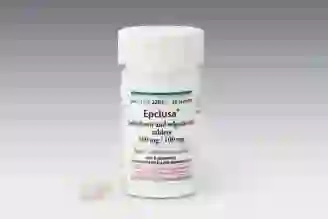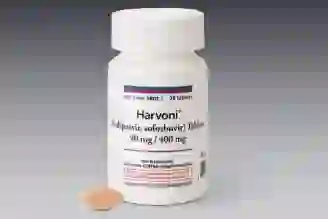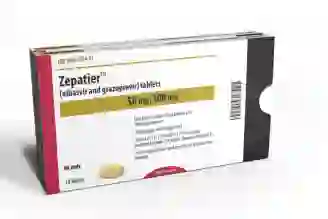
Since 2011, the U.S. Food and Drug Administration (FDA) has approved a dizzying array of new and highly effective hepatitis C (HCV) medications that don't require peginterferon and ribavirin (Rebetol). These approvals have come at an almost breakneck pace, meaning that treatments approved as little as five years ago have already been discontinued.
At first, the new generation of drugs -- a drug family called direct-acting antivirals, or DAAs -- could only treat patients with genotype 1 infection, the most common subtype of hepatitis C in the United States. But after a flurry of new drug approvals, those earlier drugs fell out of favor. For example, ombitasvir/paritaprevir/ritonavir (taken with another drug, dasabuvir, and sold in a blister package as Viekira Pak) was FDA-approved in 2014 and was once among the most-prescribed HCV DAAs. But in January 2019, drugmaker AbbVie discontinued production after the cocktail's popularity was surpassed by other, single-pill regimens capable of treating multiple hepatitis C genotypes.
Meanwhile, market competition has meant that prices have also dropped. For example, ledipasvir/sofosbuvir (Harvoni, approved in 2014) and sofosbuvir/velpatasvir (Epclusa, approved in 2016) launched at a list price of $95,000 and $75,000, respectively. However, in 2018 the company announced it would license "authorized" generics of those two drugs, which effectively dropped their price to $24,000 at the start of 2019.
Today, four different fixed-dose combinations sit atop the official HCV treatment guidance document co-written by the American Association for the Study of Liver Diseases (AASLD) and the Infectious Diseases Society of America (IDSA):
sofosbuvir/velpatasvir
ledipasvir/sofosbuvir
glecaprevir/pibrentasvir (Mavyret)
elbasvir/grazoprevir (Zepatier)
Most of these regimens can cure the majority of patients in as little as 12 weeks -- some in as little as eight weeks.
Considering the variety of treatments now available, what's the best DAA for each patient seeking treatment today? Experts at AASLD/IDSA are keeping tabs on all the available evidence supporting each new regimen that comes to the market, and they continuously update their recommendations. We summarize the most important takeaway messages regarding each drug below.
Although several hepatitis C drugs can treat almost all infections regardless of viral genotype, picking the right drug will depend on each patient's medical history, level of liver damage, and coinfections.
Sofosbuvir/Velpatasvir (Epclusa)

In June 2016, sofosbuvir/velpatasvir became the first single-tablet regimen approved to treat all six major forms of hepatitis C. According to the AASLD/IDSA guidance, there is strong evidence that this drug works to treat patients who have never previously been treated for their infection, including patients with liver scarring known as compensated cirrhosis. There is also strong evidence that the drug works for most patients who have previously failed treatment with peginterferon and ribavirin, including those with compensated cirrhosis.
However, the drug is not universally approved for all patients who have previously been treated with DAAs. For example, guidelines recommend this treatment only for genotype 1 patients who have previously been treated with NS3 protease inhibitors, and for genotype 1 and 2 patients who have previously been treated with sofosbuvir or an NS5A inhibitor. Genotype 3, 4, 5 and 6 patients who have already been treated with an NS5A inhibitor may not be eligible for treatment with sofosbuvir/velpatasvir. Instead, they may need a similar drug that contains a third ingredient: sofosbuvir/velpatasvir/voxilaprevir (Vosevi).
Ledipasvir/Sofosbuvir (Harvoni)

Ledipasvir/sofosbuvir was approved by the FDA in October 2014. The regimen was bolstered by strong clinical evidence and has remained one of the most highly recommended regimens in AASLD/IDSA guidance ever since. It can be used in patients with genotype 1, 4, 5, and 6 infections, including those who are naive to prior treatment -- with or without cirrhosis -- and those who have previously been treated with peginterferon and ribavirin, without cirrhosis. It is only recommended for genotype 5 and 6 patients with prior peginterferon ribavirin treatment and compensated cirrhosis.
In some newly diagnosed patients who have relatively healthy livers, treatment with sofosbuvir/ledipasvir can safely be shortened to eight weeks, rather than the standard 12-week treatment course.
Glecaprevir/Pibrentasvir (Mavyret)

Glecaprevir/pibrentasvir was approved in April 2017 to treat all hepatitis C genotypes, with or without cirrhosis. One of the defining characteristics of this combination is that clinical research shows it’s just possible to shorten the treatment duration to eight weeks for treatment-naive, non-cirrhotic patients with viral genotypes 1, 2, 3, and 4. AASLD/IDSA also recommends glecaprevir/pibrentasvir as an eight-week regimen for patients with viral genotypes 1, 2, 4, 5, and 6 without cirrhosis who have already been treated with peginterferon/ribavirin.
A 12-week course of glecaprevir/pibrentasvir is recommended for treatment-naive patients with genotype 1, 2, 3, and 4 who have cirrhosis, and for patients who have already been treated with peginterferon/ribavirin with genotypes 1, 2, 4, 5, and 6 and have cirrhosis. Genotype 1 and 2 patients who have already been treated with sofosbuvir can take glecaprevir/pibrentasvir, as well as genotype 1 patients who have already been treated with an NS3 protease inhibitor.
The pill is also recommended by AASLD/IDSA as an eight-week treatment for patients with genotype 5 and 6 who are new to treatment and do not have cirrhosis, and as a 12-week treatment course for treatment-naive, genotype 5 and 6 patients with cirrhosis.
Elbasvir/Grazoprevir (Zepatier)

Elbasvir/grazoprevir was approved in 2016 for genotype 1 and 4 infection, including treatment-experienced and treatment-naive patients. However, patients with the subtype genotype 1a will need to be tested for resistance prior to initiating therapy with elbasvir/grazoprevir.
Direct-Acting Antivirals: Classwide Side Effects and Warnings
Most DAAs have mild side effects, which could include headaches, nausea, and fatigue. DAAs are not always prescribed by themselves, however: The non-DAA antiviral pill ribavirin, which comes with harsher side effects, is still sometimes given to patients with advanced liver disease or those who have previously experienced treatment failure.
It’s also important to screen patients for current or previous hepatitis B infection. In 2016, the FDA warned that DAAs carry the risk of reactivating hepatitis B after two patients died and 24 cases of reactivation were reported.
Generally speaking, HCV DAAs have good safety profiles and extremely high cure rates -- capable of curing more than 95% of patients on the first try. Now, as prices continue to fall, the challenge is ensuring that the estimated 3 million people living with chronic HCV in the United States have access to treatment.